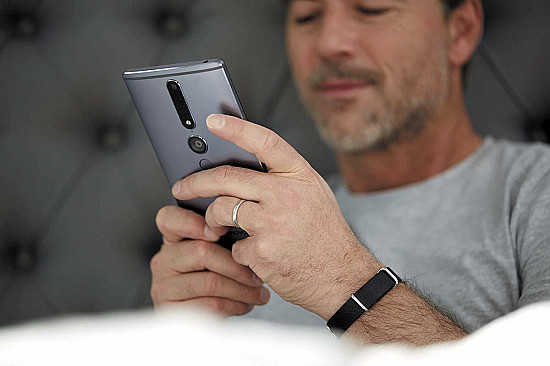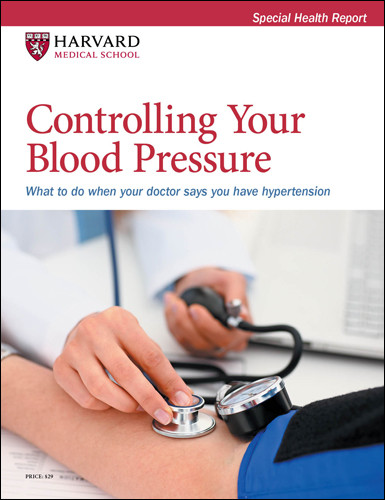A personalized program to heal your heart
Cardiac rehabilitation helps people feel better and live longer. Find out if you qualify and what to expect.
- Reviewed by Christopher P. Cannon, MD, Editor in Chief, Harvard Heart Letter; Editorial Advisory Board Member, Harvard Health Publishing

Each year, more than one million people in the United States enter the "turbulent waters of recovery" after having a heart attack, heart surgery, or other cardiovascular-related problem, according to an article in The New England Journal of Medicine earlier this year. But only about 25% of these people participate in cardiovascular rehabilitation, a personalized program of supervised exercise and heart-healthy lifestyle coaching. Doing cardiac rehab does not guarantee that you'll sail smoothly through your recovery. But it can steer you in the right direction and provide lasting benefits.
"Cardiac rehab lowers your risk of future heart-related illnesses and hospitalizations and may help you live longer," says Dr. Hicham Skali, director of the cardiac rehab program at Harvard-affiliated Brigham and Women's Hospital. By helping you safely regain your stamina, rehab can also make it easier to do things like carry groceries, climb stairs, and resume your favorite activities. The program may even boost your mood by lessening stress and depression.
The typical program lasts 12 weeks, meeting twice a week for one to two hours. A team of doctors and other experts assess participants' health needs and develop individualized treatment plans that focus on exercise, a heart-healthy diet, weight control, stress reduction, sleep, and medication adherence. To find out if you're a candidate, see "Am I eligible for cardiac rehab?".
Here, two recent graduates of the Brigham and Women's cardiac rehab program in Foxborough, Mass., share their experiences and what they found worthwhile.
Am I eligible for cardiac rehab?Medicare Part B covers comprehensive cardiac rehabilitation if you have a referral from your doctor and any of these conditions or procedures:
To find a program near you, search the online directory of cardiac rehab programs maintained by the American Association of Cardiovascular and Pulmonary Rehabilitation. |
Kevin's story
Kevin, 76, had a procedure to replace his narrowed aortic valve and received a pacemaker. He found all the program's central aspects — nutrition, exercise, and stress reduction — to be very helpful.
"I had a general awareness that I needed to improve my diet. But I didn't appreciate the combined impact of all the small changes we learned about. For example, I'm now much more conscious about how much salt I'm eating. Like many Americans, I tended to eat lunch meat and burgers. Now, I eat more seafood, and I have salads with olive oil vinaigrette," he says. His tastes have changed, and his modified diet feels like "the new normal."
As someone who typically spent hours working in his garden each day, Kevin looked forward to resuming his active lifestyle. But as is true for many cardiac patients, he wasn't entirely comfortable starting to exercise again after his procedure. "You're not sure how far to push yourself at first," he says. But the rehab experience eased his mind. You start with a stress test, exercising on a treadmill or stationary bike while being closely monitored. "They help you find the right level of intensity, keep you in the right range, and help you gradually increase as you get stronger each week," says Kevin.
He was already familiar with stress management strategies from his career in business education and had even tried one technique with his spirited, high-energy young grandson. "I told him if he could be like a Buddhist monk and sit still with his eyes closed for a full minute, I'd give him a prize," Kevin says. He found that revisiting these mind-calming practices for himself was beneficial. Pausing and putting aside thoughts of all the things you need to do, even for just a few minutes, reminds you that you have the ability to feel more relaxed and less anxious at any time, in any place, he says.
Suzanne's story
After receiving a stent after a heart attack in late 2022, Suzanne underwent triple bypass surgery the following year at age 60. She has never smoked and never been overweight. Her biggest heart risk is a strong family history of premature cardiovascular disease, which affected both of her parents and several siblings.
For her, the supervised exercise classes were the most valuable part of her cardiac rehab experience. "I was very cautious about what I could and couldn't do. Being closely monitored gave me confidence, just knowing that things were working properly," she says. To stay active, she takes a long walk in her neighborhood — which includes some hills — every day.
The program's nutrition classes were also instructive, improving her awareness of the amounts and types of foods to eat. "About a quarter of your plate should be protein-based food, another quarter should be carbohydrates, and the other half should be fruits and vegetables. I was already eating fruits and vegetables, but I added even more and cut back on carbs," she says. She avoids processed foods as much as possible and reads the labels on everything she buys. "Packaging can be deceiving, since terms like 'light' or 'reduced sodium' don't necessarily mean a product is low in sodium," she notes.
For some people, managing a slew of new medications after a heart-related problem is challenging. Suzanne's only complaint was frequent bruising after she got the stent, which requires taking two anti-clotting medications for a year. Today, she takes a blood pressure drug, along with two cholesterol drugs to keep her LDL (bad) cholesterol under 55 milligrams per deciliter — a target many cardiologists now recommend for people who've had a heart attack.
Like Kevin, she also appreciated the stress management coaching. "At the end of class, they would lead us through a short meditation practice," she says. "I feel my stress in a physical sense, especially in my upper back. Meditation helps you relax your entire body."
For anyone who's hesitant about doing cardiac rehab, she recommends it wholeheartedly. "You'll definitely walk away with physical, mental, and emotional benefits," says Suzanne.
Image: © simonkr/Getty Images
About the Author

Julie Corliss, Executive Editor, Harvard Heart Letter
About the Reviewer

Christopher P. Cannon, MD, Editor in Chief, Harvard Heart Letter; Editorial Advisory Board Member, Harvard Health Publishing
Disclaimer:
As a service to our readers, Harvard Health Publishing provides access to our library of archived content. Please note the date of last review or update on all articles.
No content on this site, regardless of date, should ever be used as a substitute for direct medical advice from your doctor or other qualified clinician.
















